INTERSECT@CMU Shares COVID-19 Lessons for Future Action
Just as all things adapt to the coronavirus pandemic, so did Carnegie Mellon University's third annual INTERSECT@CMU Conference. The event, which brings together CMU professors, researchers, students and alumni with industry leaders and innovators to discuss the future of business, technology and humanity, appropriately chose the theme "COVID-19: Learning into Action" for its 2020 virtual gathering.
INTERSECT is a university-wide effort supported by all seven colleges at CMU. Sessions began on Sept. 10 and were held in September and October. The conference was free and open to all.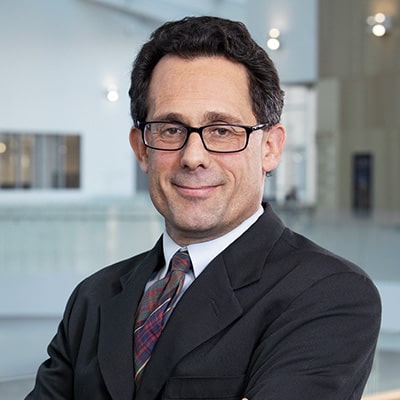 "INTERSECT has grown every year, through the hard work, support and participation of people across CMU," said Alan Scheller-Wolf, the Richard M. Cyert Professor of Operations Management in the Tepper School of Business and one of three co-chairs for INTERSECT'S program committee. "We embrace the idea of working across schools, disciplines and boundaries to collaborate to try and solve society's largest problems. INTERSECT is a very tangible embodiment of this."
"INTERSECT has grown every year, through the hard work, support and participation of people across CMU," said Alan Scheller-Wolf, the Richard M. Cyert Professor of Operations Management in the Tepper School of Business and one of three co-chairs for INTERSECT'S program committee. "We embrace the idea of working across schools, disciplines and boundaries to collaborate to try and solve society's largest problems. INTERSECT is a very tangible embodiment of this."
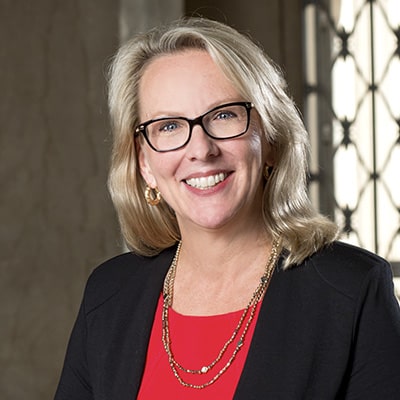 Each week of the conference addressed a different subtheme, beginning with Health. The event kicked off with a "A Conversation on the Data Revolution and the Future of Health Care" between speakers Glen de Vries, a CMU alumnus, co-CEO of Medidata and author of "The Patient Equation: The Precision Machine Revolution in the Age of COVID-19 and Beyond"; and Rebecca Doerge, the Glen de Vries Dean of the Mellon College of Science.
Each week of the conference addressed a different subtheme, beginning with Health. The event kicked off with a "A Conversation on the Data Revolution and the Future of Health Care" between speakers Glen de Vries, a CMU alumnus, co-CEO of Medidata and author of "The Patient Equation: The Precision Machine Revolution in the Age of COVID-19 and Beyond"; and Rebecca Doerge, the Glen de Vries Dean of the Mellon College of Science. 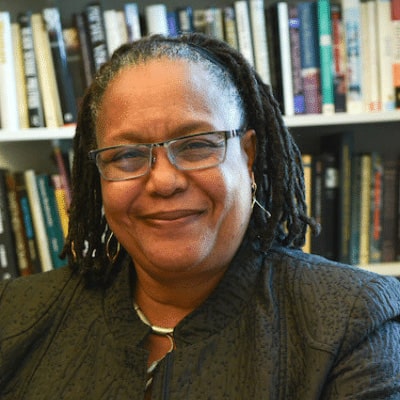 On Sept. 11, Evelynn M. Hammonds, chair of the Department of the History of Science, Barbara Gutmann Rosenkrantz Professor of the History of Science and Professor of African and African American Studies at Harvard University, gave the Health Keynote, followed by a panel discussion addressing how the American health care system is responding to the pandemic, and how it can be made more robust and equitable moving forward.
On Sept. 11, Evelynn M. Hammonds, chair of the Department of the History of Science, Barbara Gutmann Rosenkrantz Professor of the History of Science and Professor of African and African American Studies at Harvard University, gave the Health Keynote, followed by a panel discussion addressing how the American health care system is responding to the pandemic, and how it can be made more robust and equitable moving forward. 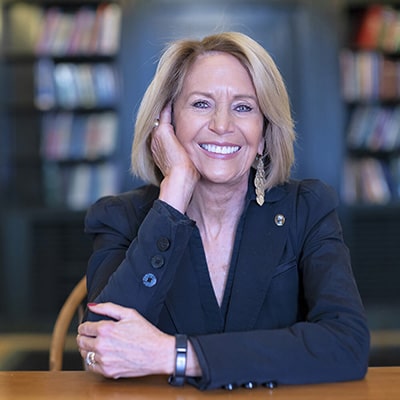 On Sept. 18, Marcia McNutt, president of the National Academy of Sciences, delivered the Sustainability Keynote, followed by a panel discussion on how COVID-19 presents opportunities to rethink sustainability.
On Sept. 18, Marcia McNutt, president of the National Academy of Sciences, delivered the Sustainability Keynote, followed by a panel discussion on how COVID-19 presents opportunities to rethink sustainability.
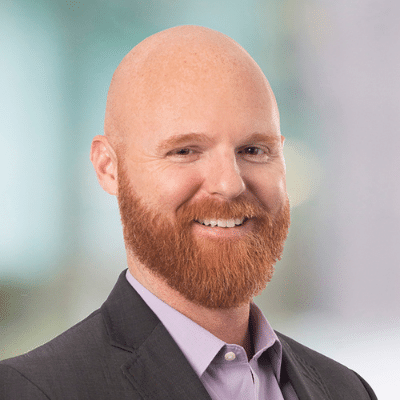 The Keynote for the Education session of INTERSECT was delivered by Craig Roberts, senior program officer of the Bill & Melinda Gates Foundation, on Oct. 2. Roberts discussed national efforts, supported by the Gates Foundation, to research how higher education has adapted to the challenges presented by the pandemic. As a former faculty member and director of learning innovation at Duke University, he shared his personal insights on effective remote learning. His talk was followed by a panel discussing the lessons learned from COVID-19 and what this means for education and children.
The Keynote for the Education session of INTERSECT was delivered by Craig Roberts, senior program officer of the Bill & Melinda Gates Foundation, on Oct. 2. Roberts discussed national efforts, supported by the Gates Foundation, to research how higher education has adapted to the challenges presented by the pandemic. As a former faculty member and director of learning innovation at Duke University, he shared his personal insights on effective remote learning. His talk was followed by a panel discussing the lessons learned from COVID-19 and what this means for education and children.
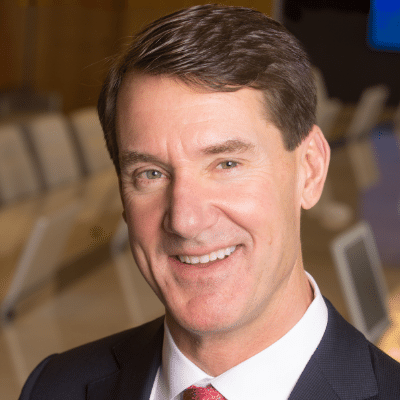 On Thursday, Oct. 29, William S. Demchak, chairman, president and chief executive officer of The PNC Financial Services Group, delivered the Economy Keynote, followed by a panel bringing together business leaders, academics and community leaders to envision how to rebuild a more robust and equitable economy that is more resilient to future shocks.
On Thursday, Oct. 29, William S. Demchak, chairman, president and chief executive officer of The PNC Financial Services Group, delivered the Economy Keynote, followed by a panel bringing together business leaders, academics and community leaders to envision how to rebuild a more robust and equitable economy that is more resilient to future shocks.
"If we want to help mitigate the negative effects of the COVID-19 pandemic, we first need to understand these effects from a medical standpoint, a social standpoint, an economic standpoint and an equity standpoint," Scheller-Wolf said. "We need collaboration between experts, as well as people from different places in society. We need to leverage expertise, data, and technology. It will be important to look back in five, 10 or 20 years to assess what happened retroactively, but right now is when we can try to have the most influence over the next few months. We need to have these conversations now."
INTERSECT also launched a series of student-led programming this year called STUDENTSECT@CMU. Organized by a committee of CMU undergraduate and graduate representatives, this student-led programming incorporates the student perspective into the conference agenda.
STUDENTSECT put on Future-thon, a multi-disciplinary challenge where 28 student teams submitted projects centered around “using COVID-19 as an opportunity for a better tomorrow.” Students in India, Qatar, California and Pittsburgh participated.
“The Future-thon was such a success because for many, it feels like the pandemic has sidelined us. I think we're all looking for opportunities to step outside of the current situation and come up with ideas to make the world a brighter place,” said Mathew Polowitz, an MBA student in the Tepper School of Business. “Our goal was to use COVID as a springboard to question the status quo. As students, we not only have the luxury of dreaming big, but also the brainpower and resources to come up with some real solutions to what the global community is experiencing right now.”
Carnegie Mellon University thanks our 2020 INTERSECT@CMU supporters: Optum, PNC Bank and The PNC Center for Financial Services Innovation, UPMC Enterprises and Liftoff PGH.